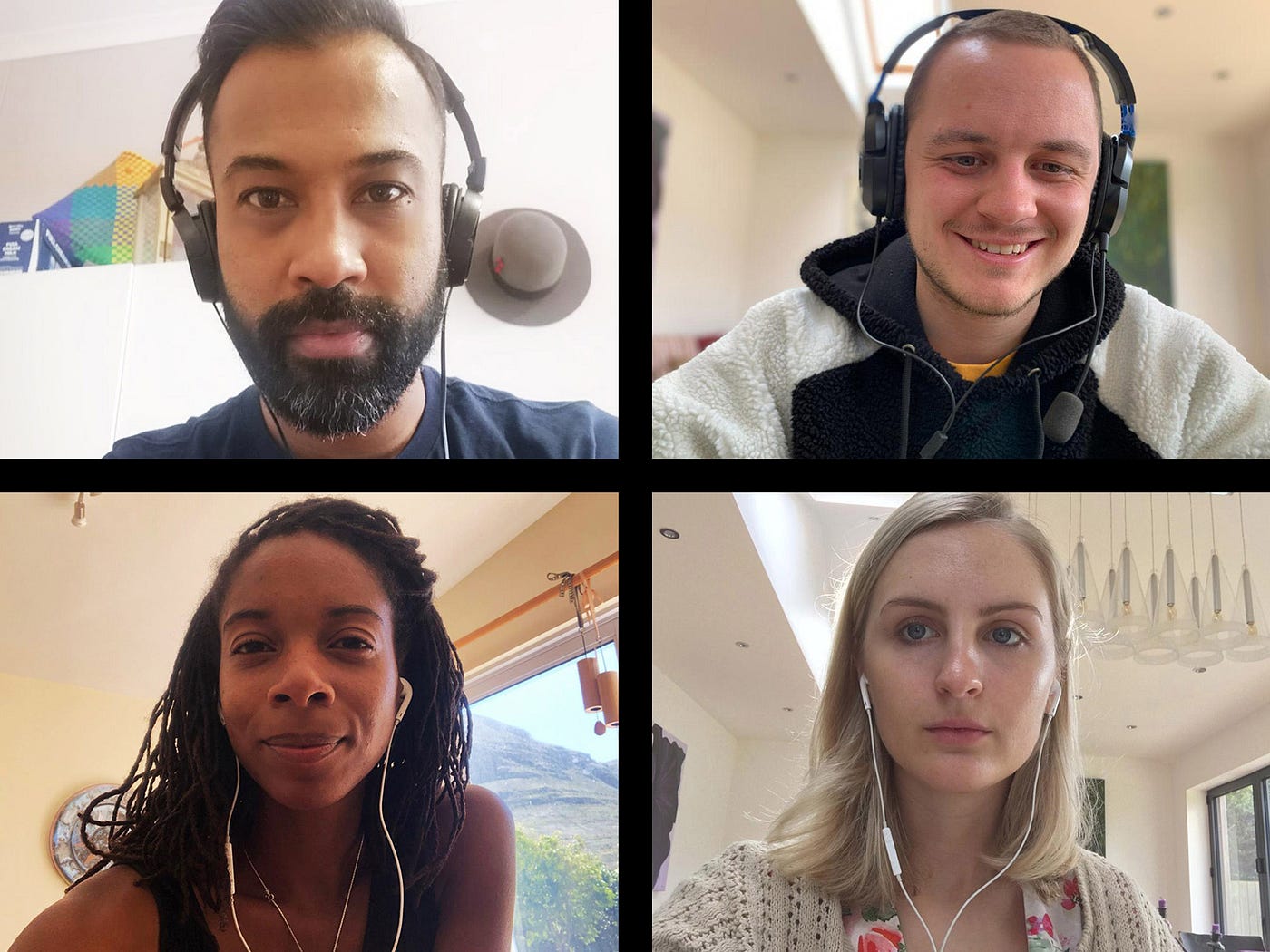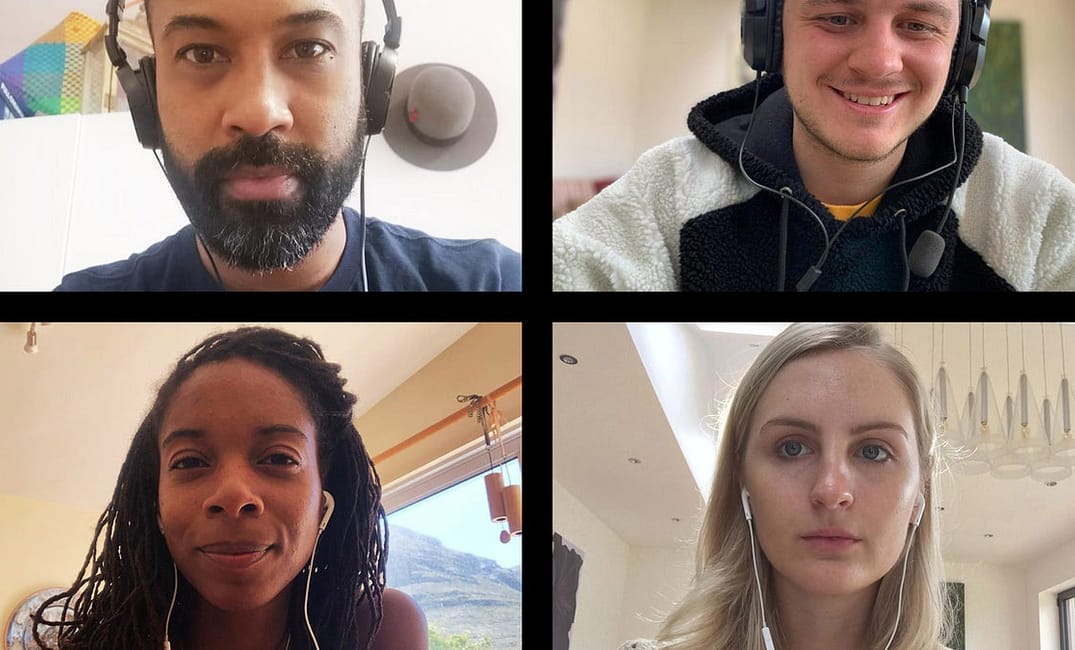
“I’m kind of annoyed that we moved on when I wasn’t finished yet,” says Sarah, a fortysomething lawyer in one of my weekly online therapy groups as she noticed she hadn’t received enough emotional nourishment from the group.
Sarah had been discussing her feelings of depression and isolation that, as with many of us, have only intensified during the pandemic. She described her pandemic fatigue — that burned-out, low-level malaise many of us relate to. After telling her fellow group members that her emotional tank wasn’t yet full, she continued to share, and they then provided empathy, expressed understanding for her loneliness, and offered care.
Sarah was receiving from the group what’s missing for many of us as we spend less time with family, friends, and colleagues. This social malnutrition is a major contributor to our pandemic fatigue, and something we’re all feeding these days with less nutritious outlets, such as bingeing on TV, comfort food, and alcohol.
I checked in with Sarah after getting this emotional meal from group members.
“How is the tank feeling now?”
Sarah noted, “Better than it was before.”
Individual therapy enjoys almost mainstream status in today’s culture, but for group therapy, people have been more resistant. That is, until recently. Now, group therapy is growing in popularity and relevance with the pandemic highlighting ways our relationships aren’t meeting our social and emotional needs. As a Bay Area therapist, I’ve never had more people reaching out to me to join a therapy group than in the months since the pandemic started.
Happily, research shows group therapy matches individual therapy in its effectiveness for treating many psychological concerns and can provide other benefits, as well.
Interpersonal relationships give us the emotional nourishment vital to our mental and physical health, pandemic or not. The Harvard Study of Adult Development has tracked the physical and mental well-being of its participants for over 75 years. The study found that it is not the number of relationships someone has but the quality of those relationships that matters. Those who are healthier, happier, and live longer have strong, healthy attachments. The pandemic’s social distancing restrictions have made it even harder to fill our emotional tanks from our existing relationships, and in many cases, have shown us how the relationships we do have may be lacking in the kind of emotional nutrition we need to feel replenished.
Interpersonal group therapy acts as a laboratory for members to study and experiment with how to have emotionally nourishing relationships. They can try this style of direct communication without the risk that comes with relationships outside the group. I teach members to pay attention to how they’re feeling, naming their emotions, and identifying what they might need from the group to feel more supported. Members develop skills in emotional communication, which is a cornerstone of social nutrition that involves noticing their feelings toward others in the group and the leader, plus expressing those feelings in the moment. From this, they can begin to notice how these same emotional patterns impact their outside relationships.
Terry, a twentysomething marketing analyst in one of my groups, has been exploring his pattern of how he gets his needs met in relationships, as well as expressing and accepting feelings he has when they aren’t. He recently shared with the group, “I’m angry and hurt that I’m often so giving in here, but others don’t seem to look out for me the same way. I’ve been going through a rough time with my recent breakup, which you all know, but how come no one is checking in on me about that?”
Angela, a fortysomething consultant, shared, “I was scared that if I gave you that attention, others in the group might feel jealous, and I feel scared of eliciting jealousy. That’s an uncomfortable feeling for me.”
Richard, a thirtysomething nonprofit executive, shared, “It’s not you, it’s me. You’re not doing anything wrong. I’m so uncomfortable with feelings I don’t know what to do with them, so that’s why I don’t ask about it.”
As group members shared their emotions in the moment in response to what Terry said, he learned other people sometimes don’t meet our needs because of reasons that have nothing to do with us. He also discovered the cost of his pattern of not asking directly for what he needs, and being disappointed when others don’t guess what he wants.
For many, not knowing how to join a therapy group is a deterrent to getting started, but there are plenty of opportunities out there. If you’re already in individual therapy, bring it up with your therapist to see if they have recommendations. If not, you can search online for directories — look for ones that verify therapist licenses and whether the therapists have completed specific training in group therapy. There are a wide range of therapy groups, from general to topic oriented support groups focused on areas such as addiction, grief, etc.
If you’re looking for groups focused on emotional communication and changing how we show up in relationships, look for references to interpersonal relationships or skills, relational patterns or dynamics, giving and receiving feedback, or emotional communication. When you contact a group therapist, it’s also a good idea to clarify the focus.
It’s clear our social isolation isn’t going anywhere for awhile, and when we are able to safely emerge, the many months of reclusiveness will make it difficult to open back up. We know this global trauma is going to have lasting impacts on our mental health beyond any we’ve seen in our lifetime. The progress I’ve seen in my group members, even online during the pandemic, has been heartening and demonstrates that a small group of people can change each other’s world.
Sign up for The Bold Italic newsletter to get the best of the Bay Area in your inbox every week.







